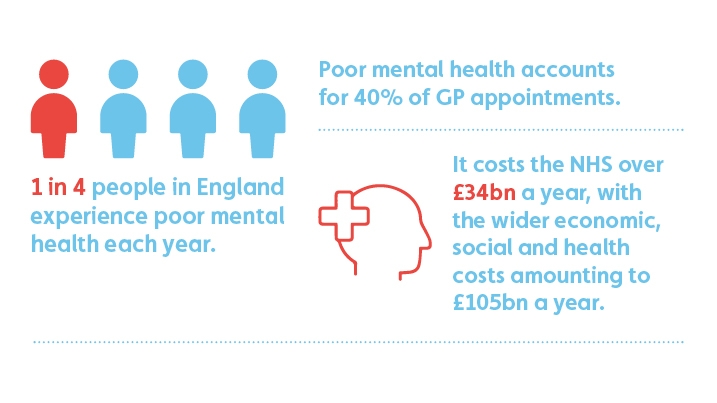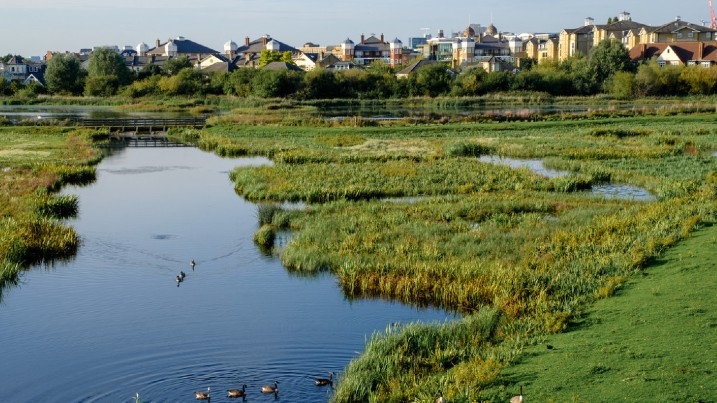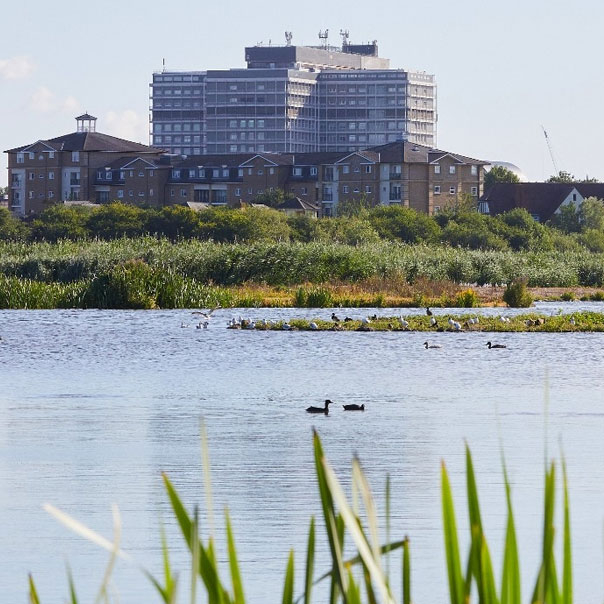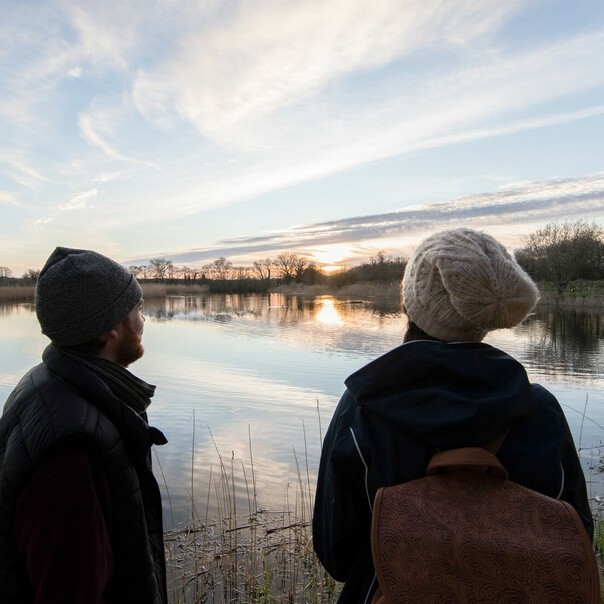Blue Prescribing
Blue Prescribing is a nature-based health programme that supports people experiencing poor mental health by helping them getting them outside and enjoying the benefits of wetland nature.
It is based on the growing health practice of social prescribing, which enables health care professionals and GPs to refer people to local, non-clinical services to improve health and wellbeing and make better use of community resources – like local natural spaces.
WWT’s Blue Prescribing Project focuses on providing facilitated wetland nature engagement activities that promote a range of mental and physical health benefits like reducing anxiety, stress, social isolation while increasing physical activity.
In partnership with The Mental Health Foundation, we have delivered courses over several weeks that enable people to be active, take notice of wildlife and connect with other people in wetland settings.
While we are not currently offering courses at our sites, you can find support for mental health here for services and organisations that can directly help people experiencing mental health problems.
Find out more
The challenge

The wellbeing crisis in the UK is only getting worse with more than two-thirds of UK adults by 2020 reporting worries about the effects of Covid-19 on their lives4. At the same time the pandemic has highlighted the health and wellbeing benefits associated with spending time in nature.
However, constrained by capacity and limited options, mainstream NHS services are struggling to meet this demand with 70-75% of people with a diagnosable mental health problem receiving no treatment at all5.

What we are doing
It’s clear more support options are needed to meet this growing need, especially ones that harness the wellbeing benefits associated with spending time in nature. Our research shows that WWT’s Blue Prescribing is a promising healthcare option for people experiencing anxiety and depression.
Our science and the feedback from participants tells us that Blue Prescriptions work, that they are cost effective and that the participants love them and want more.
Dr Jonathan Reeves, Principal Research Officer (Health & Wellbeing), WWT
In 2021 we partnered with the Mental Health Foundation to devise and deliver a nature-based self-management programme at WWT London. Sixty people in 12 groups took part in the six-week courses, consisting of about three hours each week, with time spent both inside and out in nature.
To measure the impact of the programme, we worked with research partners to evaluate quantitative and qualitative responses from participants. The nature-based activities proved to be an effective starting point in connecting people, and participants also reported feeling better as a result of having experiences in common and sharing stories, socialising more with others, and improved awareness of nature and its benefits.
Overall, the group experienced meaningful positive change in their mental wellbeing, moving from ‘low’ wellbeing to a level close to the national average, while also enjoying significant increases in feeling worthwhile and happy, and some increase in life satisfaction
Dr Jonathan Reeves, Principal Research Officer (Health & Wellbeing), WWT
We continue to work with University of Exeter to research how nature prescribing can best be evidenced and delivered, for people and nature.
Report summaryFull report
Case studies
We are also providing evidence of the economic benefit of nature prescribing, with our research showing that every £1 spent on WWT Blue Prescribing and wider activities at WWT Steart, yielded £9.30 of ‘social value’ for participants.
Our Blue Prescribing project sits within our wider work or ambitions to level up and reduce inequalities by enabling greater access to nature for those that need it most. Better health outcomes are associated with access to blue and green spaces, yet one in three people currently have no access to nature within a 15-minute walk, with lack of access concentrated amongst the poorest urban and ethnic communities.
"By focusing on the wildlife, it clears your mind of everything else and stops you thinking about what’s worrying you. You go away feeling light-hearted and refreshed."
Blue Prescriptions course participant
WWT landmarks
2019
WWT Slimbridge pilot is conducted and the research is published.
2019
Partnership with Mental Health Foundation begins.
2020
The Blue Prescribing Project PhD with the University of Exeter begins.
2020
The Blue Prescribing Project team work with the University of Exeter’s Nature On Prescription project to trial new nature prescribing guidance.
2021
The Blue Prescribing Project at WWT Steart Marshes begins.
2021
Development of anonline nature-based, mental health self-management course begins.
2021
The Blue Prescribing Project at WWT London Wetland Centre begins.
2022
Delivery of wellbeing activities throughout the year at WWT Steart and London Wetland centre supporting around 250 people.
2023
Publication of Social Return on Investment (SROI) evaluation of Blue Prescribing at WWT Steart Marshes.
2023
Evaluation of Blue prescribing at WWT London Wetland Centre further demonstrated benefits on participant wellbeing


